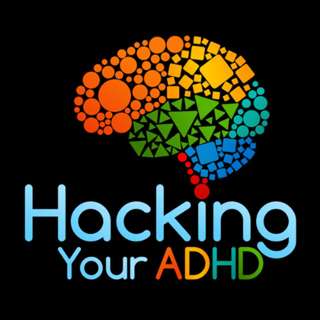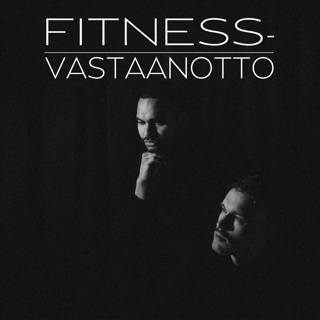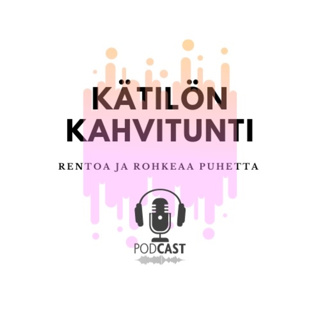
Self-Diagnosis
Self-diagnosis has become a hot-button topic in the mental health world as social media has ramped up many people’s awareness of many of these conditions. But how valid is that self-diagnosis? Some people argue it's dangerous while others argue that self-diagnosis is as valid as a formal diagnosis. In today’s episode, we’re going to wade into this minefield and see what grains of truth we can pull out and where this tool is useful and where it isn’t. Support me on Patreon Connect with me on: Facebook Twitter Instagram or ask me a question on my Contact Page Find the show note at HackingYourADHD.com/selfdiagnosis This Episode’s Top Tips So yeah, this is normally where the top tips would go, but I’m not sure that works as well for this episode, so I just wanted to break things down real quick here. What I’m trying to get at with this episode is that self-diagnosis tends to be an issue of equity and the fact that not everyone can easily get assessed for their mental health conditions is a problem. There is still a lot of stigma and misinformation around ADHD so getting that diagnosis can be difficult. What it comes down to though is what that diagnosis is going to do for you - if you need medication and accommodations then, yes absolutely go seek that formal diagnosis, but if you’re just looking for better ways to work with your brain, going with self-diagnosis isn’t a bad option. And to be sure if you do go the route of self-diagnosis, just be sure to be open to other options. As we went over there are a lot of ways that ADHD symptoms can show up in other mental health conditions, so just stay open and stay curious. And at the end of the day, it doesn’t really matter what you’re diagnosed with as long as your doing those things that makes it easier for you to work with your brain.
9 Touko 202216min

Executive Function
Executive function is a hot topic around ADHD - and more specifically how we often have a deficit in it. One of the trickiest parts about executive function is that there isn’t a universally accepted model of executive functions - I know that feels kind of surprising because it seems like something that is talked about as much as executive functions is that we’d have something that is generally agreed upon. So for this episode, we’re going to be focusing on Russell Barkley’s self-regulation model - although I’ll certainly be pulling from other sources as well. I really like Dr. Barkley’s model of self-regulation, because in many ways we can actually look at ADHD as a disorder of self-regulation itself. And that’s exactly what Dr. Barkley proposes, that executive function and self-regulation are the same thing and that with ADHD we have a deficit in our executive functions and therefore a deficit in our self-regulation. As such, I’ll be using executive function and self-regulation interchangeably throughout the episode to help emphasize that they are the same thing. In this episode, I’m going to go into exactly what executive function and self-regulation are, how we use them and how we can get back on track when we find ourselves missing some of that self-regulation. Support me on Patreon Connect with me on: Facebook Twitter Instagram or ask me a question on my Contact Page Find the show note at HackingYourADHD.com/executivefunction This Episode’s Top Tips We can think of executive functions and self-regulation as the same thing. Our primary executive functions are working memory, cognitive flexibility, and inhibitory control. We have a limited resource pool for our executive functions and we use some of it every time we engage in self-regulation. Fortunately, we can help restore some of these resources by doing things like taking a break, having a snack, and getting some exercise. One of the best ways to help with executive function is to modify our environment so that we’re reducing the amount of self-regulation we need to do. This means doing things like putting away distractions and making time more visible.
2 Touko 202217min

Retrain Your Brain with Ben Ahrens
Today I’m talking with Ben Ahrens the CEO and Co-founder re-origin which is a science-based, self-directed neuroplasticity training program. Ben was a former trainer and semi-professional surfer who became bedridden with Chronic Neurological Lyme Disease for over 3 years. In his search to help heal himself, Ben sought out and consulted with top neuroscientists and cutting-edge doctors from all over the world. His successful recovery led him to working with these same neuroscientists to develop the program that became re-origin. In my talk with Ben today we discuss how we can start with just one breath, the power of changing our beliefs and how important it is to embrace the process. Support me on Patreon Connect with me on: Facebook Twitter Instagram or ask me a question on my Contact Page Find the show note at HackingYourADHD.com/onebreath
25 Huhti 202238min

Listener Questions: Doom Box Follow-Up
My friend and colleague, Bob Dietrich, is interviewing me and over 40 other amazing experts on The ADHD Toolbox LIVE! This FREE video series is packed with tools and strategies for overcoming overwhelm, anxiety, procrastination, executive function challenges, and much more. This is a must-have for any parent looking for solutions for their child. Join for FREE here Hey team, welcome back to another questions and answers episode - today I am going to be giving a follow up to my episode about doom boxes and try and clear a few things up - I’m also going to be answering a question about what some of my favorite apps are for productivity and focus. Support me on Patreon Connect with me on: Facebook Twitter Instagram or ask me a question on my Contact Page Find the show note at HackingYourADHD.com/DoomboxQandA
18 Huhti 202215min

Success with ADHD: Finding Balance with Brendan Mahan
This week I’m coming in with my second episode in the success with ADHD series and I’m talking with Brendan Mahan. Brendan is a dynamic ADHD/Executive Function consultant, coach, and speaker. And he runs the ADHD Essentials Podcast on this network. Brendan is also probably one of the people I quote the most when I’m doing this podcast because he just has so many great ideas about ADHD and how to approach those issues. You may remember him from when I interviewed him a few years ago about The Wall of Awful - if you haven’t heard that episode go check it out, it’s a concept that’s definitely worth knowing about. In our conversation today Brendan and I talk about what makes us successful with ADHD and how we can reframe some of those ideas to fit with who we really are and how one of the biggest keys is finding that balance in our life and our work. Support me on Patreon Connect with me on: Facebook Twitter Instagram or ask me a question on my Contact Page Find the show note at HackingYourADHD.com/ADHDsuccesspart2
11 Huhti 202224min

An Even Deeper Dive Into Multitasking (rebroadcast)
To recap from last week we learned that are there are three kinds of multitasking - Classic Multitasking where we're trying to perform more than one task at the same time. Rapid task switching where we're just going from one task to another in quick succession. And interrupted task switching where we're interrupted from one task and switch what we're doing without finishing what we were doing. We also covered how we're more likely to try and multitask with things we're familiar with but how that actually creates more of a cognitive penalty from breaking up our tasks and how we often just don't realize how much concentration we're using to complete a task - as evidenced with how dangerous texting and driving is. This week we're going to be exploring more of the cognitive and biological costs of multitasking, then get into some specific kinds of multitasking that can really drain us and we'll finish up with some ways we can work on reducing the amount of multitasking we do. Support me on Patreon Connect with me on: Facebook Twitter Instagram or ask me a question on my Contact Page Find the show note at HackingYourADHD.com/multitaskingpart2 This Episode's Top Tips Multitasking has both cognitive and biological costs that accumulate as we do more and more task switching. These costs can be especially hard on those of us with ADHD because they can serve to drain our executive functions. Multimedia multitasking is one of the worst ways we can multitask because often we're essentially binge multitasking where we multitask for a sustained period and really drain our systems. One of the biggest appeals to multitasking is that we don't have to prioritize what we're doing, we can just choose to do both. To help stave off multitasking work on knowing what your priorities are and create systems where you can focus on just doing those things. One of our best defenses against multitasking is mindfulness - if we can be specific about what we want to do and then become aware of what we are doing throughout the day we can help ourselves focus on doing just one thing at a time.
4 Huhti 202220min

Deep Dive Into Multitasking (rebroadcast)
This week we're going to be deep-diving into multitasking - this is one of those topics that I frequently mention in episodes, but I've never featured before. Not because it doesn't deserve its own episode, but because multitasking is actually a fairly complicated issue and is going to take a bit of time to dissect. So this is actually just going to be my first episode in a series on multitasking and we'll really try and dig into the nitty-gritty of it. In today's episode, we're going to be talking a bit about what multitasking is and what it isn't - then we'll work on some ways to really drive home the time costs of multitasking and well finish up by looking at some of the ways that multitasking can actually put us in harm's way. Support me on Patreon Connect with me on: Facebook Twitter Instagram or ask me a question on my Contact Page Find the show note at HackingYourADHD.com/multitasking This Episode's Top Tips There are three kinds of multitasking - Classic Multitasking where we're trying to perform more than one task at the same time. Rapid task switching where we're just going from one task to another in quick succession. And interrupted task switching where we're interrupted from one task and switch what we're doing without finishing what we were doing. When we're talking about multitasking we're primarily concerned with doing two cognitive tasks at the same time that require sustained attention. This means something like walking and listening to a podcast is fine to do because neither carries a huge cognitive load. We often try to multitask with things that we're already fairly practiced at, but this means that we're going to suffer even more of a penalty as we try to combine doing them with other things. Don't text and drive - or even just play with your phone while behind the wheel. When we're mentally juggling all of these different things we're dividing our attention and it takes time for us to refocus on what we need to be doing.
28 Maalis 202219min

Building Mindset and Fitness with Karen Broda
In this week’s episode, I’m talking with Karen Broda, a Personal Trainer & Wellness Coach who helps ADHD-ers look & feel good naked! Her purpose is to have you thrive in your body, both physically & mentally so you can show up with confidence every day. The focus of her work is on uncovering & busting past the self-sabotaging beliefs that are causing you to get in your own way. Karen is a Pro Bikini Athlete, Circus artist & instructor, & lives in a Tiny Home she built herself! In our conversation today we discuss the importance of mindset, some of the ways we can reframe our views on exercise, and we also get into how we can set up systems that will keep us exercising even on those days when we don’t want to. Support me on Patreon Connect with me on: Facebook Twitter Instagram or ask me a question on my Contact Page Find the show note at HackingYourADHD.com/karenbroda This Episode’s Top Tips We can think of our mindsets like a muscle and like a muscle they need to be exercised. By working on our mindset consistently we can work on overcoming some of our limiting beliefs. Reframing exercise as movement and movement that we enjoy doing is a great way to get yourself introduced to doing more activity in your day. A great way to find more ways to incorporate movement into your day is to break down the activities you already like doing and figuring out which parts of those you love and where you can find those same aspects in other activities. It’s just about finding things that you can do to move your body consistently. The three components you need for building an exercise system and getting results with it are: First is consistency - next is having it challenge you and thirdly crafting a positive mindset around your routine. Make sure to first build your mindset and then your systems once you have those set you can build up your tips and tricks. Don’t let yourself get bogged down in the little details before you create your foundation.
21 Maalis 202234min





















